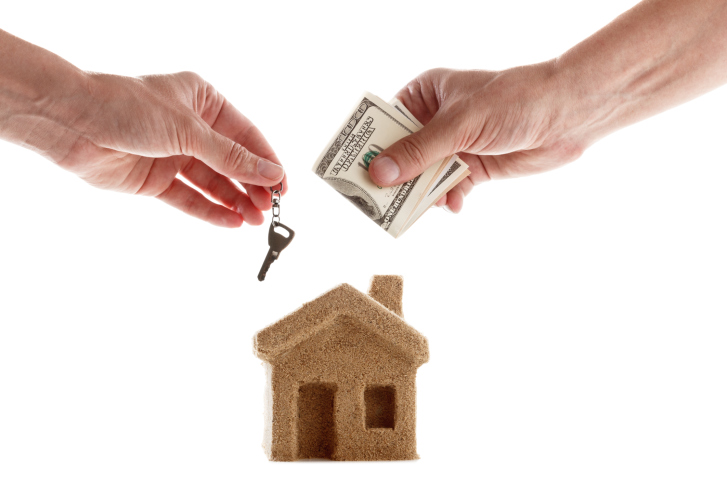Five Required Mortgage Closing Costs – And A Few Tips On How To Minimize Them
 Mortgages are expensive, and closing costs only add to the financial burden that homebuyers face. But with a little knowledge, you can pinpoint places to save on your mortgage closing costs and keep more money in your pocket. When you’re negotiating your next mortgage, use these tips to reduce required closing costs and keep more of your hard-earned money.
Mortgages are expensive, and closing costs only add to the financial burden that homebuyers face. But with a little knowledge, you can pinpoint places to save on your mortgage closing costs and keep more money in your pocket. When you’re negotiating your next mortgage, use these tips to reduce required closing costs and keep more of your hard-earned money.
Title Insurance: Request The Simultaneous Issue Rate
Title insurance is an important add-on that no buyer should go without. At the time of closing, there may be a variety of title problems that could arise – like encroachments, easements, unpaid liens, and fraud. If a previous property owner wasn’t properly discharged from the title, they may have a claim to the property.
In the event that title ownership challenges arise later on, your title insurance will compensate you for any losses and expenses you incur when trying to prove your ownership. Buying title insurance may help you to avoid the hourly fees you’d pay a lawyer or notary to investigate your title. Typically, when you receive title insurance, you and your lender will each have separate insurance policies on the title.
You can minimize the out-of-pocket expense by asking the insurance provider for their simultaneous issue rate. This is a highly discounted rate that applies when both the borrower and lender title insurance policies are issued at the same time.
Origination Fees: Negotiable If You Have Good Credit
An origination fee is a kind of prepaid interest fee that you surrender to your mortgage broker when you apply for a mortgage. It only applies when you use a mortgage broker.
However, it’s not a mandatory fee for most buyers – even if they go through a broker. The purpose of an origination fee is to compensate the broker for the time and effort they need to invest to get your loan approved. If you have good credit and you can prove your income, then this fee isn’t necessary – and you shouldn’t have any trouble getting your broker to eliminate this fee.
Also note that an origination fee is the same thing as a broker fee. If your agreement includes both, you’re getting charged for the same service twice. Ask for one of them to be removed.
Mortgage Application Fees: Typically A Money Grab
A mortgage application fee is another common fee that you can usually avoid. This fee – which typically runs about $50 or so – is something your lender charges you in order to cover the cost of running your credit report. However, since banks and brokers order hundreds of credit reports every day, they can pull your credit report for next to nothing.
The $50 fee they charge you is, essentially, free money for them – and you can usually get them to drop this fee if you ask.
Underwriting Fees: Your Broker Shouldn’t Charge You For Underwriting
Brokers don’t underwrite loans – lenders do. That means if you’re getting your loan through a broker, you shouldn’t have to pay any kind of underwriting fee – it should already be included in the loan terms the bank set. It’s perfectly valid for a bank to charge you an underwriting fee, but ask your broker to take underwriting fees out of your agreement.
Courier Fees: Handling Documents Should Be A Standard Business Practice
One common closing cost is courier fees. These fees come in different amounts and go by different names. It may be $20 or $50, and it may be called a courier fee or a document handling fee.
Title companies might very well use couriers to send documents, but lenders most likely won’t – and $50 is excessive. Document handling fees are a standard cost of doing business – and that means they should already be included in the lender’s core billed services, not added as an extra fee. Use this argument when you ask your lender to remove the fee – they’ll likely comply.
Buying a house is expensive enough without added fees that merely complicate things. But with a mortgage professional on your side, you can figure out which costs are reasonable and which ones aren’t. Contact a mortgage professional near you to learn more about saving money on closing costs.

 If you’re like most homeowners, you probably believe that one missed mortgage payment won’t have a noticeable impact on your FICO score. People get behind now and then, and besides, you’ve been faithfully making payments on time for years. How bad could it be?
If you’re like most homeowners, you probably believe that one missed mortgage payment won’t have a noticeable impact on your FICO score. People get behind now and then, and besides, you’ve been faithfully making payments on time for years. How bad could it be? If you’re looking for a new home, you’ve probably heard lots of advice about down payments. About how it’s okay to just have a five percent down payment – you’ll still get approved. About how you should make the down payment as small as possible to avoid cash flow problems.
If you’re looking for a new home, you’ve probably heard lots of advice about down payments. About how it’s okay to just have a five percent down payment – you’ll still get approved. About how you should make the down payment as small as possible to avoid cash flow problems.